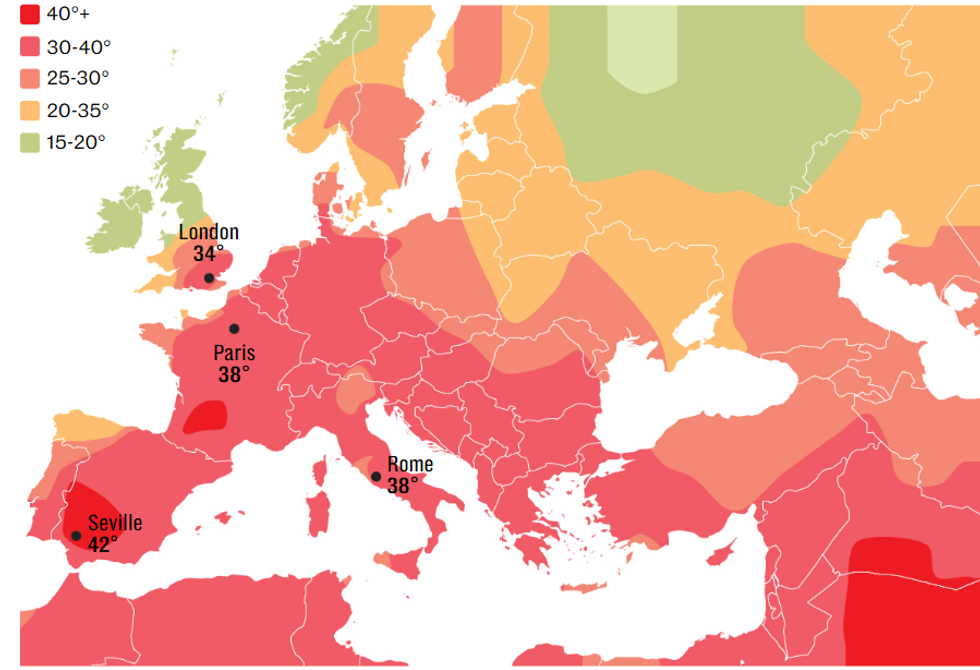INDIA has deepened its diplomatic and economic ties with the Gulf Cooperation Council region this year with prime minister Narendra Modi visiting three of the six GCC countries including Kuwait where no Indian prime minister had been after Indira Gandhi.
As 2024 unfolded, a renewed focus on strategic partnerships in the region took centre stage, with Abu Dhabi serving as the pivotal gateway to this robust alliance.
From high-profile visits to pivotal agreements, the story of India and the GCC, an influential grouping comprising the United Arab Emirates, Bahrain, Saudi Arabia, Oman, Qatar and Kuwait, is a dynamic one.
Abu Dhabi, the capital of the UAE, became prime minister Narendra Modi's first GCC destination in 2024.
The India-UAE bonhomie has been an ongoing story in recent years, and some layers were added this year.
Modi's Abu Dhabi visit may have hogged the limelight due to the much-talked-about inauguration of BAPS Hindu Mandir; it also gathered momentum on substantive bilateral engagements, starting with the UAE and spreading across the GCC.
Bilateral agreements with regional leaders have also constantly been on the table, furthering India's economic and cultural ties in this part of the world.
During the year, Modi also visited Qatar from February 14-15 and Kuwait from December 21-22.
His visit to Kuwait marked the first time in over four decades that an Indian prime minister made the trip, which is particularly significant as Kuwait is currently chairing the GCC.
Several ministers in the Modi government followed in his footsteps in engaging with the region.
In June, external affairs minister S Jaishankar visited Doha to review bilateral ties, focusing on trade, investment, energy, and security. The two sides have made concerted efforts to deepen strategic partnerships, focusing on economic collaboration, cultural exchange, and regional security.
Bilateral trade between India and the GCC reached approximately $161.59 billion (£126.04bn) in 2024, gathering impetus over the years.
It reflects remarkable growth fuelled by enhanced cooperation in various sectors.
Implementing the India-UAE Comprehensive Economic Partnership Agreement (CEPA) in 2022 has proven beneficial, leading to more streamlined trade processes and increased market access.
Efforts to finalise a similar CEPA with Saudi Arabia have advanced, with negotiations focusing on trade facilitation, investment protection, and sector-specific cooperation.
The GCC's investments in Indian infrastructure projects have also seen a notable uptick, particularly in renewable energy and smart city initiatives.
In September, an India-GCC Joint Ministerial Meeting for Strategic Dialogue was held in Riyadh, Saudi Arabia. This inaugural meeting marked a significant milestone in India-GCC relations.
During this engagement, Jaishankar and GCC counterparts adopted a Joint Action Plan for 2024-28 to facilitate joint ventures in energy, trade, security, agriculture, health, and food security.
Modi's participation in the GCC-India Summit highlighted the importance of the strategic partnership, focusing on regional stability, counterterrorism, and maritime security.
There were notable occasions - such as the Vibrant Gujarat Global Summit - that registered the participation of Gulf leaders in India's high-profile visits, too.
The 10th edition of the summit in Gandhinagar saw participation from global leaders, including UAE president Mohamed bin Zayed Al Nahyan.
From September 9-10, a delegation led by Abu Dhabi Crown Prince Sheikh Khaled bin Mohamed Al Nahyan visited Mumbai and New Delhi.
The visit coincided with discussions to review the India-UAE CEPA agreement, addressing concerns over trade imbalances and enhancing economic cooperation.
Energy collaboration and sustainable energy cooperation have remained a cornerstone of India-GCC relations.
The GCC's role as a key energy supplier remains vital to India and large parts of Asia. The year witnessed increased collaboration in the oil and gas sectors alongside a significant push toward renewable energy.
Joint solar and wind energy project initiatives have also been launched, reflecting a mutual commitment to sustainability and green technology.
Discussions around energy security and diversification of supply routes have been integral, especially considering global energy market fluctuations.
Furthermore, the GCC's support for India on various international platforms has underscored a shared vision for global governance, particularly regarding climate change and trade reform.
Cultural diplomacy gained momentum in 2024, with numerous initiatives to enhance people-to-people connections.
The Indian diaspora in the Gulf, comprising over eight million people, has continued to play a pivotal role in strengthening bilateral ties. Cultural festivals, art exhibitions, and educational exchanges have fostered greater regional understanding and collaboration.
The easing of travel restrictions has facilitated increased tourism, with more Indians visiting GCC countries and vice versa, further enriching the cultural tapestry shared by both nations.
Despite the progress made, challenges persist. Issues related to labour rights, expatriate welfare, and regional tensions - including the Israel-Hamas war and the collapse of the Syrian regime - require ongoing dialogue.
(PTI)

















 June 2025 was England’s warmest June since records began in 1884Met Office
June 2025 was England’s warmest June since records began in 1884Met Office

